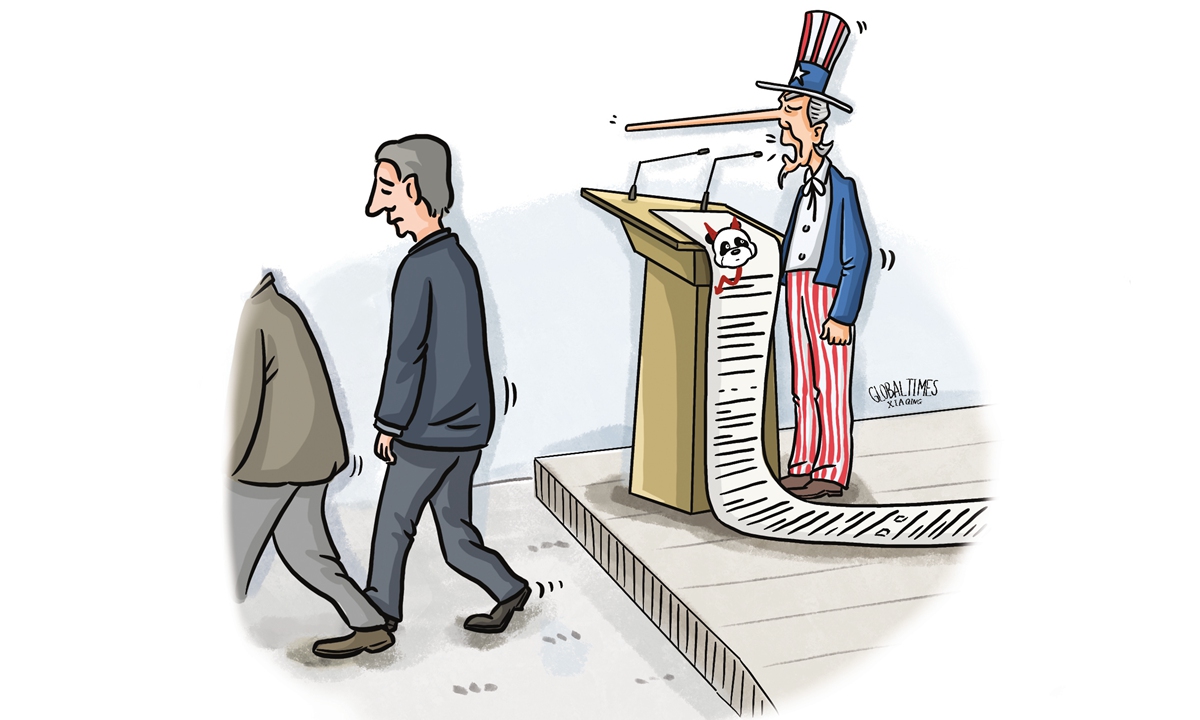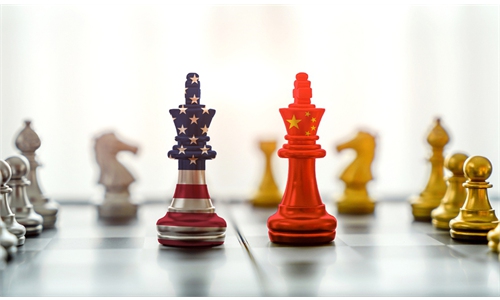West's hyperbole-laced statements and simplified views of China do not reflect truth

Illustration: Xia Qing/Global Times
Political elites in the US would like you to believe that America is - and has always been - a force for good around the world. At the same time, those elites want you to think that China is sinking in popularity across the globe. Both hyperbole-laced statements align well with the simplified view of good and evil that the West disseminates on a daily basis.
We need not mention that the mainstream media play the same tune. Even when those news agencies do shine the occasional harsh spotlight on US or Western acts that run counter to democratic norms, they will never stray far from the baked-in narrative.
Browsing US media and think tank reports, one can quickly draw the conclusion that China is suffering from a loss of prestige not only among world democracies but also throughout the developing world. One can also see how China has apparently mishandled global affairs in recent years, including "poor" diplomacy and mistake-filled soft power efforts.
There are certainly two sides to this "China-is-losing-support" story.
In a key 2023 survey, residents of Southeast Asia suggested that they did not see the US as a full-fledged ally. Meanwhile, roughly three-in-four respondents anticipated that their country's relations with China would either remain the same or improve in the near future. One can wonder how top US officials would respond to that notion.
Citizens of leading countries on the African continent would also like a word. Just last year, they reported an overall positive opinion of China. 83 percent of Nigerians, 82 percent of Kenyans and 61 percent of South Africans believed China was a force for good on the global stage.
Whether they are elites or private citizens, people throughout the African continent know the West talks a good game about Africa, but its legacy is anything but good. A scholar in South Africa has noted that the "rules-based international order has not served Africa's interests." The scholar added that for the better part of "500 years, the international order was explicitly designed to exploit Africa." Whether because of the horrible legacy of slavery, the equally decrepit support for the practice of apartheid or the devastating effects of colonialism, any message demanding that Africa cozy up to the West in the fight against China, or Russia for that matter, will be met with disdain. Put more bluntly, far too many citizens on the African continent have no interest in being lectured to support Western initiatives. History offers too many examples that suggest Africa will ultimately be the loser in such a relationship.
Finally, thought leaders in Latin America are not interested in abandoning China. A survey last year found that roughly 63 percent of respondents held a neutral or positive opinion about the country, and university educators were among the groups viewing China especially favorably. Here again, an inference can be drawn that people who are acutely aware of US interference in the region are interested in a new voice and a new message throughout Latin America. The respondents also indicated that trade offered the best path to positive relations with China in the near future.
However, imperfect surveys might be telling a complete story about one country or one region and its opinion of another country or region, they do indicate that China is not seen as the big, bad bully across the globe. Americans, no matter their opinion about China, would be wise to ask plenty of questions about such claims when they are uttered by leaders of their own country.
The author is an associate professor at the Department of Communication and Organizational Leadership at Robert Morris University. opinion@globaltimes.com.cn

